Background
Richard Stanley Lazarus was born on March 3, 1922, in New York, United States.
Richard Lazarus, educator, psychologist, researcher, author.
Richard Lazarus, educator, psychologist, researcher, author.
160 Convent Ave, New York, NY 10031, United States
Richard Lazarus earned his undergraduate degree from City College of the City University of New York.
4200 Fifth Ave, Pittsburgh, PA 15260, United States
Richard Lazarus earned his doctorate from the University of Pittsburgh.
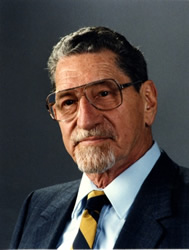





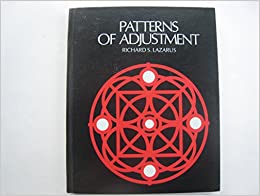
(The book analyzes the processes of adjustment and their r...)
The book analyzes the processes of adjustment and their relation to personality, focusing on models of adjustive success and failure, adaptation, behavior theory, stress and coping, and psychodynamic therapy.
https://www.amazon.com/gp/product/0070368023/ref=dbs_a_def_rwt_hsch_vapi_taft_p1_i11
1976
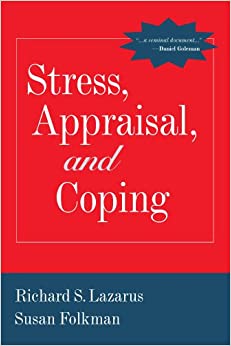
(Dr. Richard Lazarus and his collaborator, Dr. Susan Folkm...)
Dr. Richard Lazarus and his collaborator, Dr. Susan Folkman, present here a detailed theory of psychological stress, building on the concepts of cognitive appraisal and coping which have become major themes of theory and investigation. As an integrative theoretical analysis, this volume pulls together two decades of research and thought on issues in behavioral medicine, emotion, stress management, treatment, and life span development.
https://www.amazon.com/gp/product/B015QN2F4Y/ref=dbs_a_def_rwt_hsch_vapi_taft_p1_i0
1984
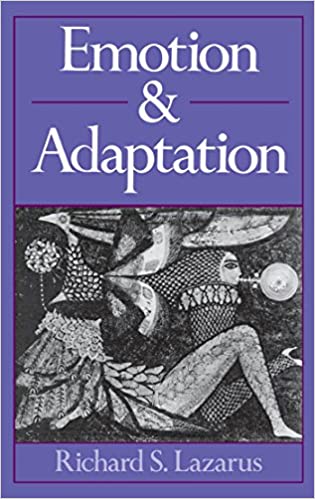
(In this landmark work, Richard Lazarus offers a comprehen...)
In this landmark work, Richard Lazarus offers a comprehensive treatment of the psychology of emotion, its role in adaptation, and the issues that must be addressed to understand it. The work provides a complete theory of emotional processes, explaining how different emotions are elicited and expressed, and how the emotional range of individuals develops over their lifetime.
https://www.amazon.com/gp/product/B00WA22568/ref=dbs_a_def_rwt_hsch_vapi_taft_p1_i1
1991
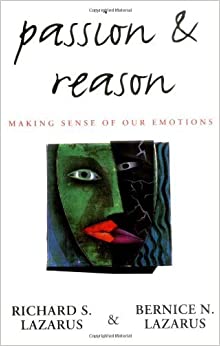
(In Passion and Reason, Richard Lazarus draws on his four ...)
In Passion and Reason, Richard Lazarus draws on his four decades of pioneering research to bring readers the first book to move beyond both clinical jargon and "feel-good" popular psychology to really explain, in plain, accessible language, how emotions are aroused, how they are managed, and how they critically shape our views of ourselves and the world around us.
https://www.amazon.com/gp/product/B000WE5PLI/ref=dbs_a_def_rwt_hsch_vapi_taft_p1_i2
1994
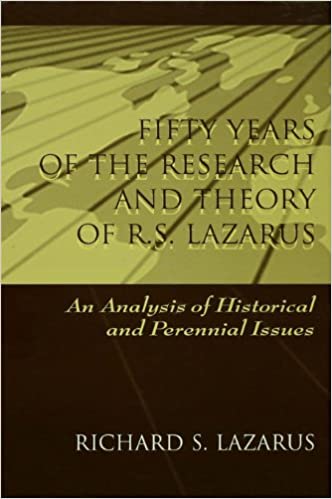
(A collection of the articles written by the author throug...)
A collection of the articles written by the author throughout his extensive career, this book achieves three goals.
https://www.amazon.com/gp/product/B00DL1QO9Q/ref=dbs_a_def_rwt_hsch_vapi_taft_p1_i4
1998
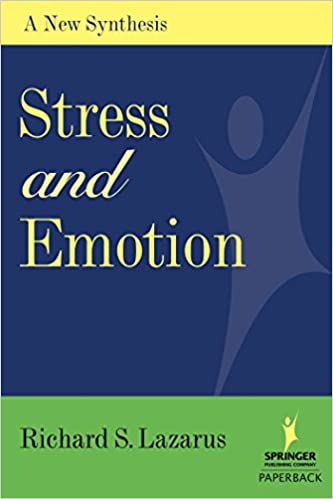
(This volume is a sequel to the landmark work that establi...)
This volume is a sequel to the landmark work that established an exciting new field of study, Stress, Appraisal and Coping (1984). The author now explores the newest trends in research and theory, focusing on the rationale for a cognitive-mediational approach to stress and emotions.
https://www.amazon.com/gp/product/B0046EBXNY/ref=dbs_a_def_rwt_hsch_vapi_taft_p1_i3
1999
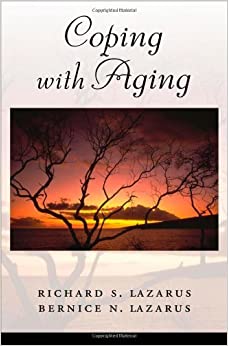
(In this volume, Richard Lazarus examines the experience o...)
In this volume, Richard Lazarus examines the experience of aging from the standpoint of the individual, rather than as merely a collection of statistics and charts. This technique is in line with his long-standing belief that experiences should be looked at in their specific contexts, rather than squeezed into an overly general statistical viewpoint that loses the subjects' motivations.
https://www.amazon.com/gp/product/B000RKX4RY/ref=dbs_a_def_rwt_hsch_vapi_taft_p1_i5
2006
educator psychologist researcher author
Richard Stanley Lazarus was born on March 3, 1922, in New York, United States.
Richard Lazarus earned his undergraduate degree from City College of the City University of New York in 1942, and his doctorate, after serving in the United States Army during World War II, from the University of Pittsburgh in 1948. He received two honorary doctorates, one in 1988 from the Johannes Gutenberg University in Mainz, Germany, and a second in 1995 from the University of Haifa in Israel.
Richard Lazarus' first job was at Johns Hopkins University, where he was an assistant professor from 1948 to 1953. He was an associate professor and a director of clinical training at Clark University in 1953-1957. The rest of his academic career was spent at the University of California, Berkeley, where he was a professor from 1957 until his retirement in 1991.
Lazarus was widely sought after abroad as a visiting professor, often together with his wife Bernice. Among his visiting appointments were a special fellowship at Waseda University in Tokyo, Japan, in 1963-1964; a series of appearances at the Karolinska Institute in Stockholm, Sweden, between 1965 and 1976; and visiting professorships at Heidelberg University in 1980, the University of Western Australia in Perth in 1984, and at Aarhus University in Denmark in both 1991 and 1997. He also was invited to present numerous lectures in Israel between 1975 and 1995.
Lazarus' work influenced psychology in many ways. At a time when psychology tried to understand human behavior by first understanding simple organisms engaging in simple behaviors learned by associations, rewards, or punishments, Lazarus instead stressed the study of cognition. He conducted highly-cited experiments on the role of unconscious processes in perception - studies that were years ahead of their time and confirmed in recent studies in affective neuroscience.
He also helped keep alive the concept of emotion during a time when it was ignored by psychology. His theory of emotion centered on the concept of appraisal - how an individual evaluates the impact of an event on his or her self or well-being - a concept which he elaborated upon extensively in his classic work, Emotion and Adaptation, published in 1991. In this book, Lazarus synthesized empirical and theoretical arguments to show how patterns of appraisal enter into the generation of at least 18 emotions. He also showed how appraisal explains the meaning of a person's emotional behavior; how a single response, like a smile, can be in the service of many different emotions; and how totally different responses, like retaliation or passive-aggressiveness, can be in the service of the same emotion.
Lazarus's strong convictions about the importance of cognition for understanding human behavior led to his investigating topics such as consciousness and unconsciousness, and to extending cognition into fields such as stress and coping. Early in his career, he studied a phenomenon he called "subception," whereby a person reacts emotionally but with no conscious awareness to stimuli that had been paired with electric shock, but does not react emotionally to stimuli not followed by a shock. This work documenting the sometimes unconscious nature of emotions was subsequently rediscovered in the 1980s when neurophysiologists found that certain brain-injured patients show strong emotional reactions to stimuli of which they are totally unaware - a phenomenon called "blindsight."
Lazarus went on to study the importance of preparing a person for emotion. He and his associates documented with experimental precision that a person's emotional reactions to witnessing a film of painful circumcision rites could be "short-circuited" by a soundtrack matter-of-factly describing the procedure, or the emotional reactions heightened by a soundtrack emphasizing the pain the subject was experiencing. The subception and instructional set studies are now considered classics in both experimental psychology and psychophysiology.
These experiments led Lazarus to establish the University of California, Berkeley Stress and Coping Project, in which he extended his ideas on the importance of appraisal to explain exactly what stress is and what coping involves. This project culminated in the publication in 1984 of "Stress, Appraisal, and Coping," which became one of the most widely read and cited academic books in psychology. Lazarus and Susan Folkman, his former student, argued that people suffer stress when they believe they lack the resources to deal with difficult events, but that they do not suffer stress if they believe that they have such resources. Stress and coping were thus intimately related to each other and cognitive factors. Lazarus and Folkman went on to make an important and now widely accepted distinction between two types of coping. In the first, the person attempts to address directly the problems that he is facing; in the second, the person tries to dampen or minimize the emotional state itself, without addressing the problem that elicited the state. Both types of coping are important, and, if used properly, can have extraordinarily beneficial consequences for physical and mental health.
In another classic study, Lazarus documented the unsuspected benefits of the coping process. He demonstrated experimentally that patients who engage in forms of denial (for example, refusing to believe that a serious medical problem exists or to accept that the problem is as severe as it, in fact, is) recover better and more quickly from surgery than patients who do not engage in such denial. Lazarus thus came to believe, contrary to orthodox wisdom, that under certain conditions, false beliefs can have very beneficial consequences to one's health and well-being. The study on the benefits of denial has now been replicated by others, and its findings are taken into consideration in health psychology and psychosomatic medicine. The study on denial also documented Lazarus's claims that an event in itself, taken without consideration of how the person construes that event, does not explain the generation of physical, emotional, or physiological states.
Though Lazarus retired from the University of California, Berkeley in 1991, his writing and research did not stop. Of his 13 books, five were written after his retirement. He also continued to contribute many influential articles and book chapters. His most recent work was an extensive critique of the contemporary movement called "Positive Psychology." Just before his death, Richard Lazarus completed a treatise on the emotion of gratitude, an emotion seldom studied or discussed in psychology.
Richard Lazarus' concept of appraisal became a principal rationale for cognitive-behavior therapy, which became one of the major approaches to psychological treatment beginning in the 1970s. For his work, Lazarus received a Guggenheim fellowship in 1989 and was awarded the Distinguished Scientific Contribution to Psychology Award from the American Psychological Association. He left a legacy of over 150 scholarly publications, and 20 books, read all over the world.
(In Passion and Reason, Richard Lazarus draws on his four ...)
1994(The book analyzes the processes of adjustment and their r...)
1976(In this landmark work, Richard Lazarus offers a comprehen...)
1991(In this volume, Richard Lazarus examines the experience o...)
2006(This volume is a sequel to the landmark work that establi...)
1999(A collection of the articles written by the author throug...)
1998(Dr. Richard Lazarus and his collaborator, Dr. Susan Folkm...)
1984Richard Lazarus considered positive thinking had its limits. A seriously ill person may do better if he maintains hope, but he should not be so optimistic that he fails to seek medical care. Still, Lazarus once told that a little fooling of yourself can be helpful.
Quotations: ''Mildly depressed people are very realistic about themselves, too realistic. As you become depressed, you become aware of your defeats and start to feel hopeless. People who function well strive against odds because they hold on to hope.''
Quotes from others about the person
Susan Folkman, Lazarus' student and colleague, said: "Richard Lazarus was a generous mentor and colleague. He was always available to discuss ideas and usually did so with great enthusiasm and tenacity."
Meng Zhaolan, ex-chair of the psychology department at Peking University, said: "I remember my many meetings and talks with him. His brilliant contributions to the study of emotion are an important part of the history of psychology."
Richard Lazarus was married to Bernice Lazarus. He had a son David Lazarus, and a daughter Nancy Holliday. At the time of his death, Richard Lazarus had four grandchildren.
Richard Lazarus' book, Passion and Reason: Making Sense of Our Emotions, was written with his wife Bernice Lazarus.

Susan Folkman is internationally recognized for her theoretical and empirical contributions to the field of psychological stress and coping. Her 1984 book with Richard Lazarus, Stress, Appraisal, and Coping, is considered a classic that helped shape the field. She was the first full-time director of the University of California, San Francisco (UCSF) Osher Center for Integrative Medicine. Appointed in 2001, she retired in 2009. From 1994 to 2001 she was co-director of the UCSF Center for AIDS Prevention Studies. After receiving her doctorate from the University of California, Berkeley in 1979, she remained there as a research psychologist until moving to UCSF in 1988. She joined the UCSF faculty in 1990 as a professor of medicine. In 2000-2004, she served on the National Advisory Mental Health Council, and in 2010 she was appointed to the National Advisory Council for the National Institutes of Health (NIH) and the National Center for Complementary and Integrative Health. She has chaired or been a member of various NIH review committees and task forces, served on National Academy of Medicine and NIH workgroups, and was co-chair of the American Psychological Association task force on ethics in research with human participants. She was also the chair of the Consortium of Academic Health Centers for Integrative Medicine from 2005 to 2007.
